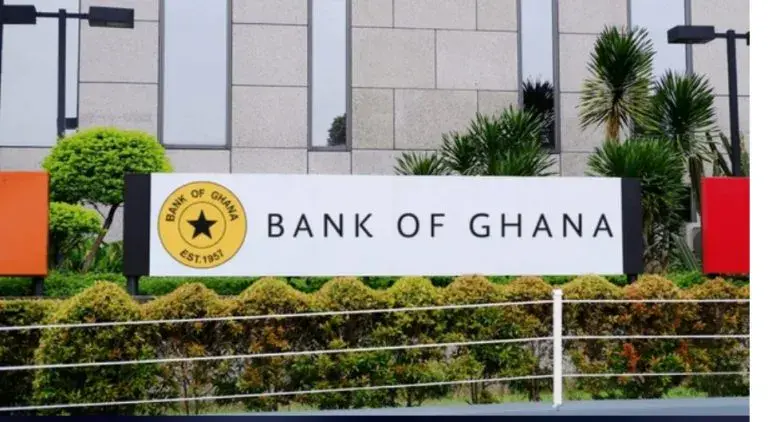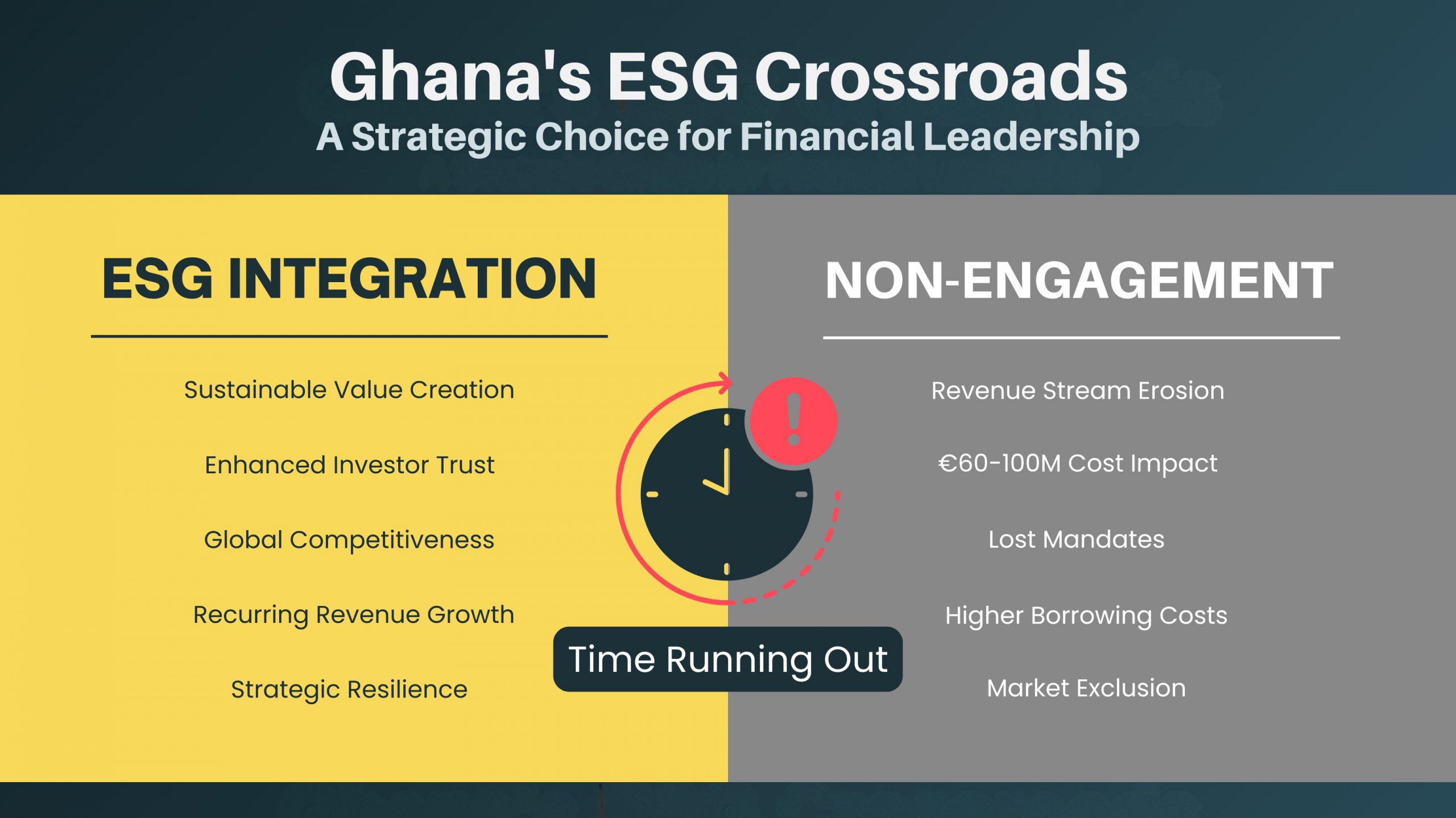
By Prof. Wayne Dunn, President & Founder, CSR | ESG Training Institute
When BlackRock lost the €14.5 billion PFZW mandate over ESG concerns, the world’s largest asset manager didn’t just lose a client—it lost between €60–100 million in annual revenue and opportunity value. This wasn’t about performance, but about climate commitments. The decision erased tens of millions in fees while closing doors to future business.
For Ghana’s financial institutions, this isn’t a distant warning—it’s a preview of what’s coming.
For Ghana’s financial sector, ESG compliance is no longer optional. With IFRS S1 and S2 adoption already scheduled—ICAG having approved a roadmap in March 2024 with a voluntary window through 2026 and mandatory disclosure thereafter—the Bank of Ghana has reinforced this through its Sustainable Banking Principles and its 2024–2028 Strategic Plan. ESG performance is now both a supervisory expectation and financial reality.

That’s just 18 months until mandatory compliance—barely enough time for comprehensive implementation.
Ghana sits uniquely positioned with natural ESG advantages: renewable energy potential, stable democratic governance, strong community traditions, and continental leadership in IFRS S1 & S2 adoption. Yet many institutions remain tentative, treating ESG as a compliance burden rather than the strategic opportunity it represents.
In Africa, ESG directly influences financing costs. Development finance institutions and international lenders increasingly link capital terms to ESG performance. Strong ESG lowers perceived risk and opens doors to blended finance. Weak ESG inflates borrowing costs and restricts market access.
Consider “Accra Capital,” a mid-sized Ghanaian bank with a GH¢2 billion loan book paying approximately 11% on international borrowing. Through systematic ESG integration—transparent governance, climate risk assessment, and community engagement—it could achieve financing terms 0.25–0.75% lower.
This translates into annual savings of GH¢5–15 million—resources that could fund digital transformation, expand customer service, or boost shareholder returns.

The reverse scenario is equally compelling. If Accra Capital ignored ESG while competitors embraced it, the result would be exclusion from development finance pools, higher compliance penalties, and reputational damage. The cost of non-engagement would far exceed the investment needed for strategic compliance.
The biggest mistake institutions make is treating ESG as paperwork. Reports and disclosures matter, but they should flow from strategy, not precede it. The right starting point is one clear question: What is our specific business case for ESG engagement?
For Ghanaian banks, this could mean reducing funding costs, improving credit ratings, and accessing concessional finance. For insurers, it might involve climate risk models that strengthen solvency. For pension funds, it means aligning portfolios with global investor expectations.

Once the business case is clear, the most effective entry tool is a comprehensive ESG SWOT analysis—mapping strengths, weaknesses, opportunities, and threats.
This clarity enables cost-effective compliance, credible stakeholder communication, and smarter capital access strategies.
Global cases like BlackRock illuminate tangible risks facing non-compliant institutions:
Hidden risks are equally damaging: exclusion from capital markets, loss of competitive position, and erosion of reputation and talent attraction.
Unlike many African peers, Ghana has a head start. ICAG, the Securities and Exchange Commission, and SIGA have established clear enforcement frameworks for IFRS S1 & S2 implementation. This creates both urgency and opportunity.
Institutions that move decisively will avoid penalties while accessing preferential financing and positioning themselves as trusted partners in ESG-driven markets. Early movers will capture competitive advantages that laggards cannot easily replicate.


BlackRock’s mandate loss wasn’t symbolic—it represented an estimated €60–100 million annual hit when fees, follow-on mandates, and reputational damage are combined. For Ghanaian institutions, the parallel is stark. Non-engagement with ESG won’t just risk penalties or higher borrowing costs—it will erode recurring income streams, investor trust, and growth opportunities.
The path forward is simple: define your business case, map your ESG SWOT, and start now. Delay carries a measurable price tag. For Ghana’s financial sector, ESG is not a narrative—it’s a bottom-line imperative.
ESG has evolved beyond compliance checklists—it is about resilience, competitiveness, and sustainable value creation. Ghana’s financial institutions face a consequential choice: embrace ESG as strategic advantage or accept the mounting costs of exclusion.
The window for positioning is closing fast. Those that act now will define Ghana’s financial leadership for the next decade.